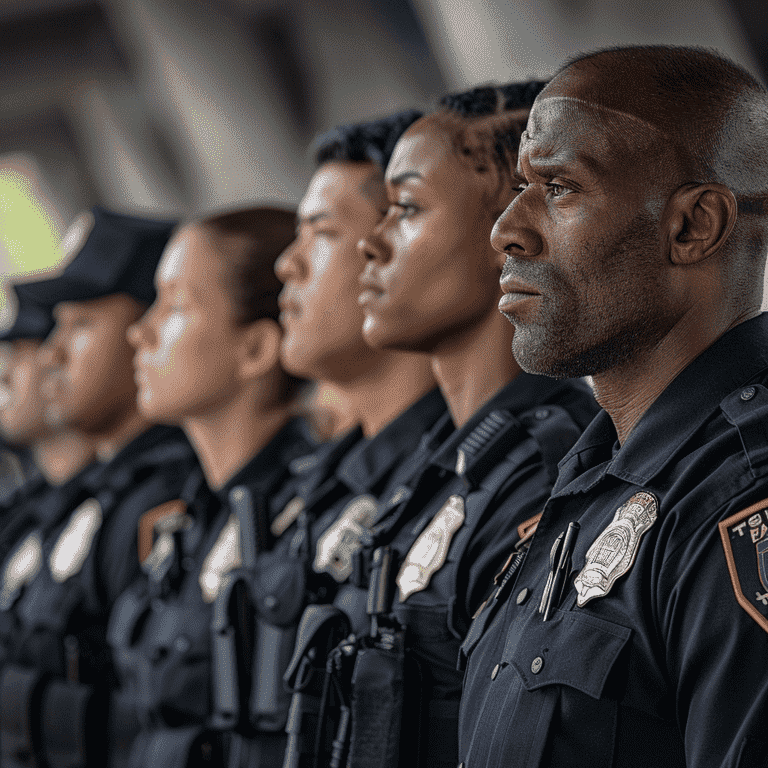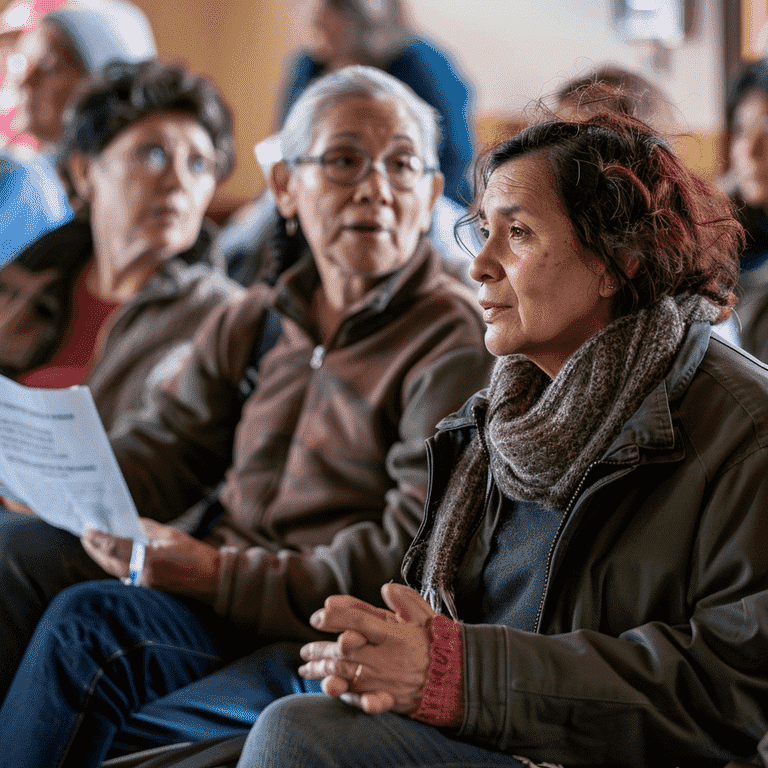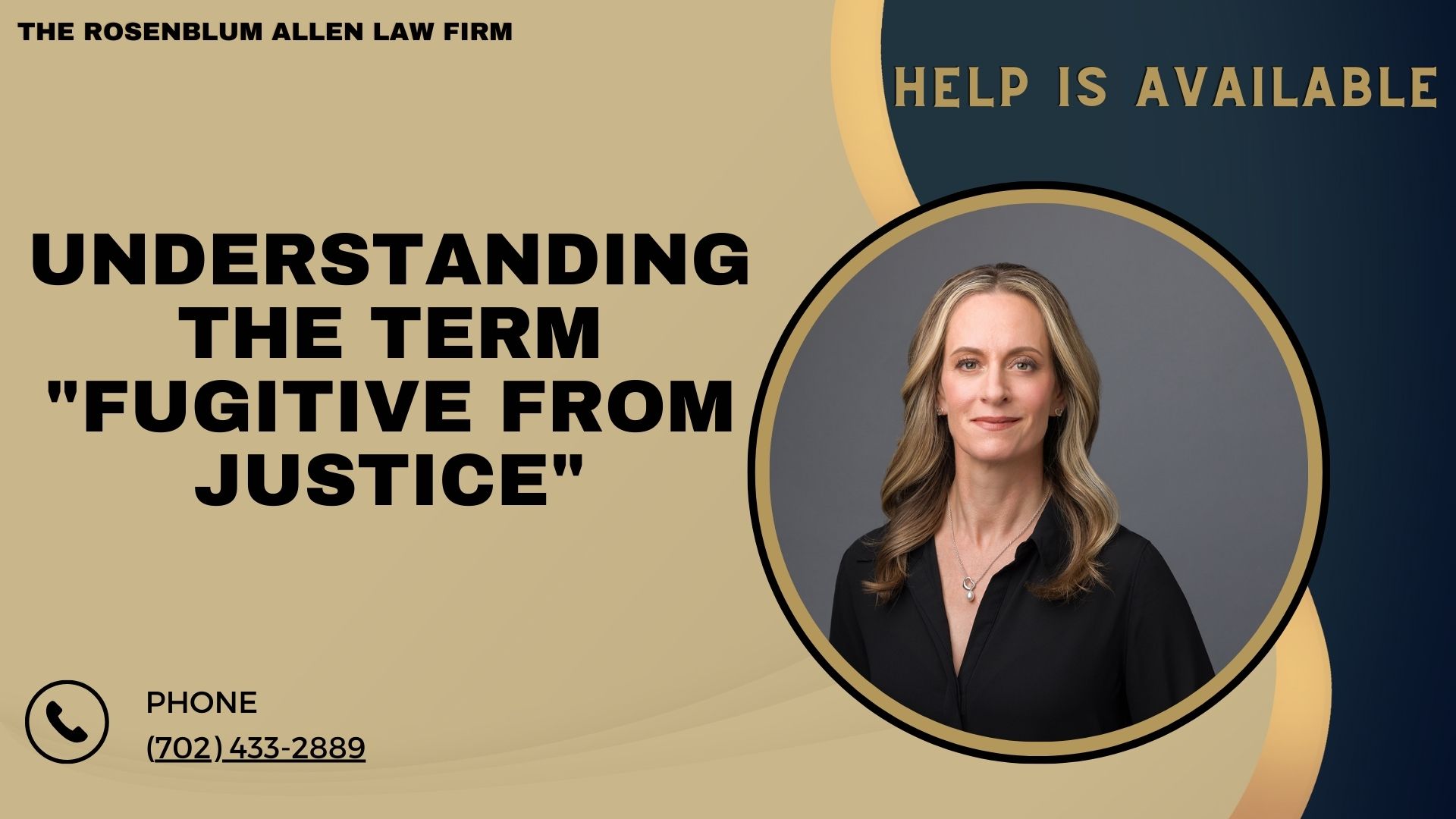The term “fugitive from justice” refers to a person who avoids the law by fleeing or hiding. They do so by fleeing from jurisdiction or hiding. No one aspires to it. Yet, it has been the plot of many stories. They range from epic Wild West tales to modern thrillers. But why is this term so significant in legal contexts?
It is crucial to understand who considers someone a fugitive. This is important for several reasons. For the legal system, it helps sort and deal with individuals. They have escaped their responsibilities or punishments. It shows the public how serious it is to evade legal proceedings. And, what the consequences are.
Note: Make sure to also check out our Nevada Extradition Laws post while you’re here.
 Historical Overview
Historical Overview
The concept of a fugitive from justice is not new. It has deep roots in history. It evolved as societies formed laws and governance.
Origins of the Term
The term emerged historically. It was as communities and early civilizations sought to keep order. They also wanted to ensure that accused people faced justice. In ancient times, geography and the lack of communication tech made fleeing hard. But, they still tried to escape justice. They did this by moving to new areas or hiding.
Evolution in Legal Systems Worldwide
As legal systems developed, so did the mechanisms for dealing with fugitives. It has gone from posting wanted notices to using modern technology. This includes digital databases and social media. The pursuit of fugitives has become more sophisticated.
Ancient Times: Use of public declarations to inform about fugitives.
Middle Ages: Introduction of extradition agreements between territories.
Modern Era: Development of national and international law enforcement agencies (e.g., FBI, Interpol) to track and apprehend fugitives.

Legal Definition
Knowing the legal definition of a “fugitive from justice” is key. It helps us understand its broader impact. The term covers many situations. It ranges from not appearing in court to escaping custody.
Criteria for Being Declared a Fugitive from Justice
Failure to Appear for Legal Proceedings
Not showing up for a court date can make you a fugitive, but circumstances vary. It can include:
Bail Jumping: Skipping court after posting bail.
Avoidance of Court Summons: Ignoring official notices to appear before a judge.
Escaping from Custody
Fleeing from law enforcement’s physical custody is a clear act of becoming a fugitive.
Jailbreaks: Escaping from jail or prison facilities.
Escaping from Law Enforcement During Transfer: Slipping away during transport from one location to another.
Distinction Between Local and International Fugitives
Fleeing justice can be local or international. This affects how police catch the fugitive.
Extradition Laws: The legal processes between countries to return fugitives.
International Warrants and Interpol’s Role: How global cooperation apprehends those fleeing across borders.
This first look at the term “fugitive from justice” reveals its complexity. It shows the depth in those three words. It has its roots in early societies. It’s essential to understand it. This is from its legal definitions and processes. Being a fugitive from justice is both intriguing and necessary.

Consequences for Being a Fugitive
Being labeled a fugitive from justice is no small matter. The effects reach almost every part of a person’s life. They leave a trail of both seen and unseen marks.
Legal Repercussions
When someone becomes a fugitive, the legal troubles begin to pile up. Here’s what kicks in:
Enhanced Charges and Sentences: Escaping justice isn’t just frowned upon; it’s punishable by additional charges that can significantly extend sentences.
Implications for Bail and Release Conditions: Think of it as burning bridges. Once a fugitive is labeled, the chance of bail in future cases nearly vanishes.
Social and Economic Impact
The impact of being a fugitive isn’t confined to courtrooms. It ripples through the fugitive’s entire life:
Employment Challenges: Finding a job becomes a Herculean task on the run.
Impact on Family and Social Relationships: The strain on personal relationships can be immense, often leading to isolation.

Legal Processes and Rights
Even fugitives from justice have rights, and law enforcement must follow specific processes. Understanding these can be crucial for those involved.
Arrest Warrants: Issuance and Execution
The arrest warrant is the cornerstone of beginning the legal pursuit of a fugitive.
Domestic Warrants: Issued within the country, allowing for the apprehension of the fugitive.
International Warrants and Extradition Processes: When fugitives cross borders, international law complicates the process.
Rights of the Accused
It’s important to remember that even those accused of being fugitives have rights.
Right to Counsel: Legal representation is not a luxury; it’s a right.
Right to Challenge Extradition: Being extradited doesn’t mean being shipped off without a say; fugitives can challenge the process in court.

Role of Law Enforcement
Law enforcement agencies are always strategizing. They plan their next move in the game of cat and mouse between fugitives and the law. Their roles are defined yet diverse, depending on the scope of the chase.
Local Police and Sheriff’s Departments
On the ground, it’s the local law enforcement that takes the initial steps.
Search and Arrest Procedures: From stakeouts to surprise checks, the local police are the first responders in the pursuit.
Federal Agencies
When the chase escalates or crosses state lines, the federal cavalry arrives.
FBI’s Involvement: With resources and reach, the FBI plays a critical role in capturing fugitives.
U.S. Marshals Service’s Specialized Role: They are the ace up the sleeve for tracking down fugitives, known for their relentless pursuit.
International Cooperation
Fugitives might flee overseas in today’s global village, making international cooperation pivotal.
Extradition Treaties: Agreements between countries to hand over fugitives play a crucial role.
Interpol Notices: Think of these as posters that are wanted internationally, alerting law enforcement worldwide.
We are uncovering what it means to be a “fugitive from justice.” It has a complex web of legal, social, and personal consequences. This status changes lives. It involves high-stakes legal proceedings. It needs the combined work of local, national, and international police to solve. But remember, behind each chase and headline are human stories. They are of choice, consequence, and, at times, redemption.

Famous Cases of Fugitives from Justice
Throughout history, individuals have tried to evade the law. Their attempts have become a legend. The stories are often sensationalized. But, they offer insight into the lengths some will go to avoid justice.
Historical Cases
D.B. Cooper: The Unidentified Skyjacker: In 1971, a man known as D.B. Cooper hijacked a plane, secured a ransom, and parachuted into oblivion. Despite extensive manhunts, he was never found.
The Escape from Alcatraz: An Unsolved Mystery: In 1962, three inmates ingeniously escaped the supposedly inescapable Alcatraz prison. Whether they survived the treacherous waters remains a mystery.
Recent Cases
Notable Extraditions: The case of Joaquín “El Chapo” Guzmán, a notorious drug lord extradited from Mexico to the U.S., highlights the complexities of international law enforcement cooperation.
Escapes and Manhunts in the 21st Century: Edward Snowden’s flight from the U.S. to Russia, avoiding charges for disclosing classified information, showcases the digital age’s challenges in fugitive capture.
These cases are extraordinary. They show the ongoing cat-and-mouse game between fugitives and law enforcement. They also show the evolving strategies used by both sides.

Preventive Measures and Public Awareness
In the fight against crime, prevention is as critical as the pursuit. We have implemented many measures and initiatives to deter people from becoming fugitives. We have also sought the public’s help in capturing those who do.
Legal Reforms and Policy Changes
To fix the root causes that lead people to flee justice, many reforms have been proposed or enacted:
Bail System Overhaul: Reforming the bail system aims to prevent unnecessary pre-trial detention and reduce the incentive to flee.
Strengthening International Cooperation: Enhancing extradition agreements and sharing information between countries make it harder for fugitives to find safe havens.
Community Involvement and Awareness Programs
Public participation plays a vital role in preventing and solving fugitive cases:
Neighborhood Watch Programs: These programs encourage communities to be vigilant and report suspicious activities, serving as the eyes and ears of law enforcement.
Public Education Campaigns: Awareness campaigns educate the public on the importance of court appearances and the consequences of becoming a fugitive, aiming to deter potential offenders.

Breaking It All Down
The term “fugitive from justice” covers a complex mix of legal, social, and personal factors. The tales are dramatic. They tell of historical escapes. There are also modern-day legal battles over extradition. The stories of those who flee from justice captivate and caution. As we’ve seen, being a fugitive has big consequences. It affects the individuals and their families, communities, and international relations.
Chasing fugitives shows the need for cooperation within and across countries. It also shows the critical role of prevention and public engagement. The society aims to reduce the incidence of fugitive cases. It also aims to ensure that justice, but hard to find, is ultimately served. It will do this through legal reforms, policy changes, and community involvement.
Remember, behind every headline about a fugitive on the run is a deeper story. It’s about people. It’s about how far the law reaches. It’s about the struggle to balance fairness and freedom in our complex world.

Frequently Asked Questions
What happens to a fugitive's property and assets?
Authorities can seize the property and assets of a fugitive. This is particularly probable if people believe that those assets come from crime. The specific outcomes can vary by jurisdiction and the nature of the crimes involved.
Can a fugitive from justice voluntarily surrender?
Yes, a fugitive can voluntarily surrender to authorities at any time. Courts might consider this act when setting bail or sentencing. But, it does not guarantee leniency. Approach the process with a lawyer. This ensures that we protect the person’s rights.
How does social media affect the pursuit of fugitives?
Social media has become a double-edged sword in the pursuit of fugitives. It offers police a new way to get tips and evidence. But, fugitives can use these platforms to evade capture. They can mislead or seek help.
Are there any protections for individuals wrongly accused of being fugitives?
People wrongly identified as fugitives have legal rights. They can challenge the warrant or extradition. Anyone in the situation must seek a lawyer now. They need to fix the mistake.
How do family members of fugitives get affected?
Family members can feel much emotional distress. They also face social stigma and money troubles. This is especially true if they depend on the fugitive for support. They might also face legal consequences if found assisting or harboring the fugitive.
What role do civilians play in capturing fugitives?
Civilians can play a crucial role. They can provide tips and info to law enforcement. They can do so directly or through anonymous tip lines. Public awareness campaigns and shows like “America’s Most Wanted” have used civilian help with success. They used it to catch fugitives.
How are international fugitives tracked in countries without extradition treaties?
In countries without formal extradition treaties, diplomats and police can negotiate. They do this to return fugitives using case-by-case channels. But, these situations are often more complex. They involve big political and legal talks.
What technologies are used in tracking fugitives?
Law enforcement agencies use many technologies to track fugitives. These include GPS tracking, surveillance cameras, facial recognition software, and social media monitoring. These tools have become increasingly sophisticated, aiding in the capture of fugitives.
Can a fugitive clear their name while on the run?
Clearing one’s name while evading the law is extremely difficult and rare. The legal system requires the accused to be present. They must contest charges or present evidence in their defense. Giving up voluntarily with a lawyer is advisable. It is good for anyone who wants to clear their name.
What measures are in place to prevent false identification in fugitive cases?
Police rely on many forms of ID to prevent false IDs. They use them before pursuing or catching a suspected fugitive. These can include fingerprints, DNA evidence, and other biometric data to ensure accuracy.
How do extradition processes differ between countries?
Extradition processes can vary a lot. It depends on the involved countries, the crimes, and treaties. Some countries may refuse extradition for political reasons or if the suspect faces the death penalty.

Additional Resources for You
If you’re navigating through a challenging time and seeking legal assistance, remember that our lead attorney, Molly Rosenblum Allen, Esq., has meticulously crafted a suite of resources to support you. These resources cover a wide range of legal areas, ensuring you have access to effective advice and representation tailored to your specific needs. Here’s a brief overview of the specialized services and resources available to you:
Criminal Defense Attorneys: For those facing criminal charges, our dedicated team can provide the defense strategy you need. Learn more.
Las Vegas DUI Lawyer: Facing DUI charges in Las Vegas? Our effective legal advice and representation can make a significant difference. Discover how we can help.
Domestic Violence Lawyer Las Vegas: Navigate the complexities of domestic violence charges with a compassionate and skilled advocate by your side. Explore your options.
Drug Possession Lawyer: Drug charges can have serious implications. Our experienced attorneys can guide you through the legal process. Get effective assistance.
Sex Crimes Attorney: Accusations of sex crimes carry heavy social and legal consequences. We offer discrete and effective defense. Find out more.
CPS Defense Attorney: Facing child abuse or neglect charges? Our team is here to defend your rights and family. Learn about our approach.
Misdemeanor Lawyer: Even minor charges deserve serious defense. Let us help you minimize the impact on your life. See how we can assist.
Las Vegas Warrant Defense Attorney: If you’re dealing with an outstanding warrant, our team can provide the guidance you need. Understand your next steps.
Las Vegas Probation Violation Attorney: Probation violations can lead to severe penalties. We’re here to help you navigate these challenges. Discover your defense options.
Theft Crime Defense Lawyer: Theft charges can affect your future employment and personal life. Our attorneys can offer the defense you need. Explore our services.
Kidnapping Lawyers: Facing kidnapping charges requires a strong defense. Our team is ready to protect your rights. Get effective legal help.
Juvenile Defense Lawyers: Juvenile charges need to be handled delicately. Our attorneys are experienced in navigating these sensitive cases. Learn about our juvenile defense services.
Firearms Lawyer Las Vegas: Navigating firearms laws requires expertise. Our team can provide the legal assistance you need. Find out how we can assist.
Molly Rosenblum Allen, Esq. and our dedicated team at The Rosenblum Allen Law Firm are committed to providing you with the legal support you need during your time of need. Don’t hesitate to reach out for assistance.

Outside Resources for You
American Bar Association (ABA): A comprehensive resource for finding legal assistance, understanding your legal rights, and accessing a wealth of information on various legal topics. Visit the ABA’s homepage.
FindLaw: Offers a broad spectrum of legal information, including articles on specific legal issues, tips for finding and working with attorneys, and more. Check out FindLaw.
Avvo: Provides detailed legal guides written by attorneys, a directory of lawyers by specialty, and a Q&A forum where you can ask legal questions. Explore Avvo.
National Association of Criminal Defense Lawyers (NACDL): If you’re facing criminal charges, NACDL offers resources, educational programs, and advocacy for criminal defense lawyers. Visit NACDL.
Justia: A valuable resource for legal information, including federal and state laws, case law, and legal articles. Justia also offers a directory of attorneys. Discover more at Justia.
National Domestic Violence Hotline: For those dealing with domestic violence issues, this hotline provides support, resources, and advice for victims and their families. Reach out to the National Domestic Violence Hotline.
Substance Abuse and Mental Health Services Administration (SAMHSA): If substance abuse or mental health concerns are part of your legal challenges, SAMHSA can provide support and resources to help. Visit SAMHSA.

A Special Message from Our Lead Attorney, Molly Rosenblum Allen, Esq

Dear Reader,
Thank you for taking the time to explore the resources we’ve carefully prepared for you. I hope you’ve found the information insightful and empowering as you navigate your legal journey. At The Rosenblum Allen Law Firm, we understand the complexities and challenges of legal matters, and we’re here to offer our expertise and support.
If you feel ready to take the following steps or have questions about your situation, please call me and my dedicated team at (702) 433-2889. We can discuss the best way forward and start working towards a resolution for your case.
Remember, you’re not alone in this. With our collective experience and personalized approach, we’re committed to standing by your side and guiding you through every stage of the legal process.
Looking forward to the opportunity to assist you,
Molly Rosenblum Allen, Esq.




